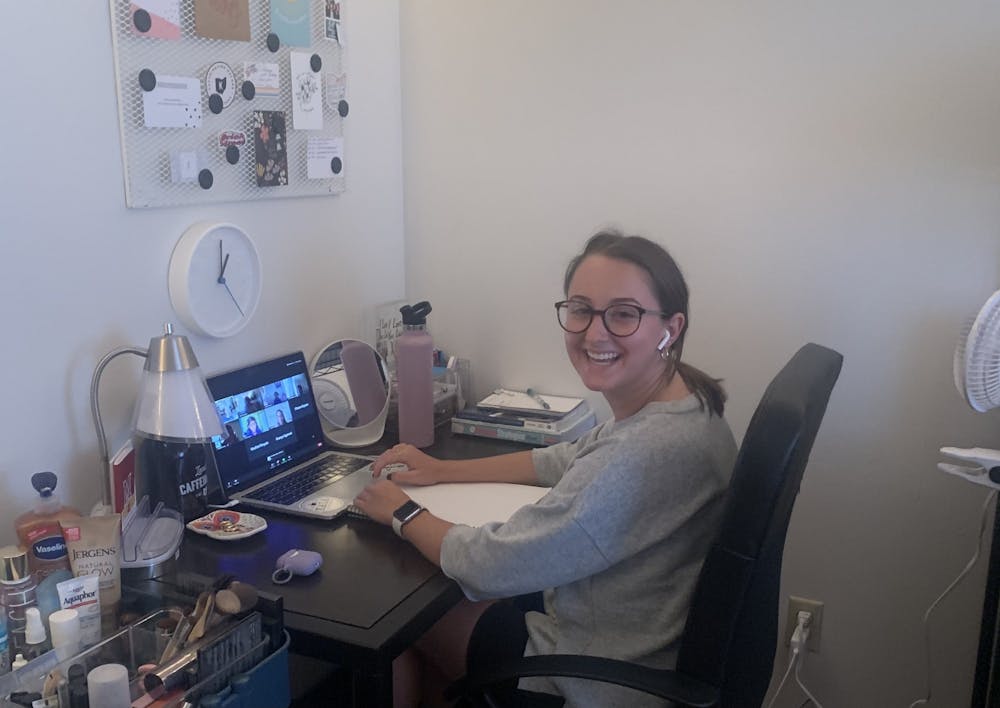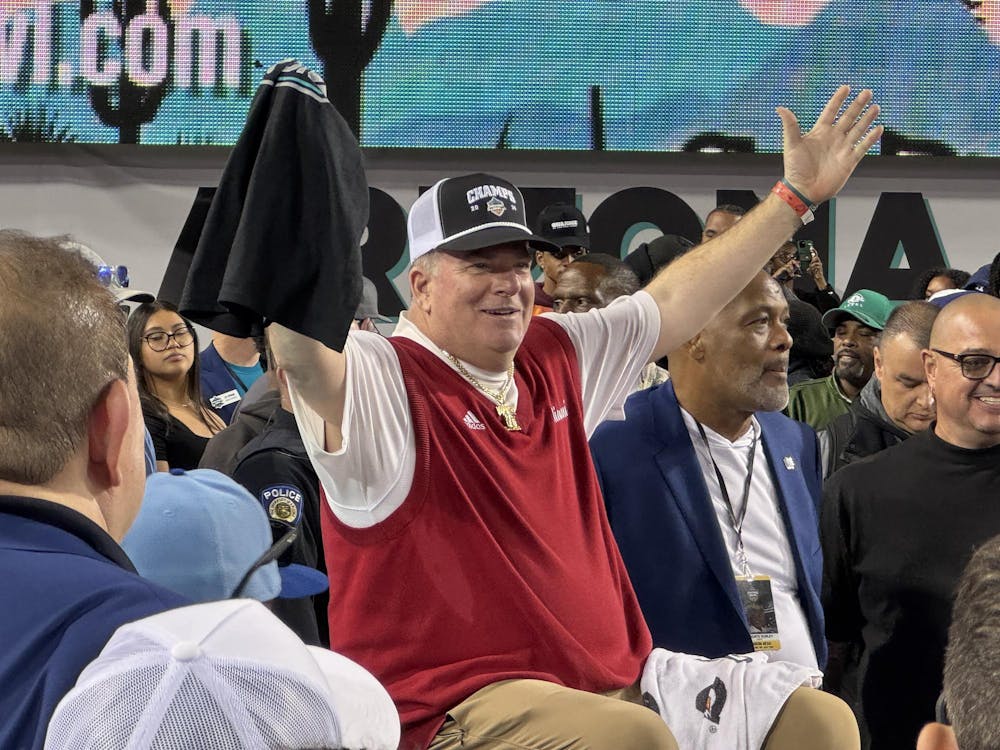Going to school in a pandemic is challenging. Any student on Miami University's campus could tell you that.
But what happens when, as you prepare to become a future educator to work with students face-to-face, your entire college career is forced online?
Education majors normally rely on in-person student interaction to get the full teaching experience. As sophomores and juniors at Miami, education majors participate in “field experiences,” which are essentially smaller doses of student teaching. During their senior year, students take a full semester off from college classes to spend every day working alongside a host teacher, an experience that counts for 15 credit hours.
With the onslaught of the COVID-19 pandemic, though, many students have had to rearrange their practice-teaching plans.
Those changes required the Office of Student Teaching (OST) to come up with alternatives to physically sending students to different schools around the Oxford area. The solution: remote teaching experiences through partners such as Ohio Connections Academy, Ohio’s tuition-free, online public school.
Nicholas Detzel, a sophomore primary education and fostering just communities double major with a minor in special education, said he’s grateful for the university’s hard work, but he’s still not sure where he’ll end up.
“I’m really looking forward to [the virtual field experience]. They’re working really hard to try and get us in there, but at the end of the day, it’s still very uncertain,” Detzel said.
Right now, Detzel is in “block one,” his first semester to include field experience. While he said he is disappointed to be missing out on the full in-person teaching experience, he said he’s glad to be working with students at all. Last semester, the block one students were only able to do limited virtual teaching, with no in-person teaching.
Abby Stephenson, a junior middle childhood education major, misses the in-person opportunities, but said she is grateful for the chance to learn more intimately about teaching online.
“It was just really a great time to pick my host teachers’ brains and learn how the transition’s going for them,” she said, “because I have another three semesters here, but there’s a chance that the world still looks like this when I go into teaching, so [it’s helpful] just kind of getting advice in how that has all looked.”
Dr. Molly Sawyer, director of clinical and field placements in the (OST), said as hard as faculty have been working, last semester, they played a strong game of triage with their student teachers.
In a normal year, the OST would ensure that each student had a placement and completed their background checks. This year, however, student teachers in their senior year had to be prioritized because they are at the end of their educational career and there are such limited opportunities for teaching.
Enjoy what you're reading?
Signup for our newsletter
Although the OST had to carefully calculate their student placements, every senior stayed on track to graduate in December 2020, and now they are beginning to once again add field experiences back into the mix.
Through all of the restrictions, Sawyer said she is amazed at her students’ resilience.
“We've really been given this opportunity to view education in a much wider way, but also practice flexibility on a daily or hourly basis,” Sawyer said. “We've all learned to live with the glitches of audio and visual … things that I think just would have caused me to meltdown in years past, you know, with presentations not going the way I thought they were going to go or lessons not going the way you think they're going to go. You just take a deep breath and you move on from it.”
Stephenson appreciates the flexibility of her professors.
“Something that has been maybe a little more stressful going through the process is just the fact that, when I am going into the workforce, I don’t exactly know what our world is going to be looking like,” Stephenson said. “But I would say that a lot of comfort is coming from our professors in the [education] program that they’re doing a really good job, like being really flexible with all the stuff that’s going on.”
Despite all the changes and restrictions, Sawyer said there is a silver lining in learning to teach during a pandemic.
“Our student teachers, and our future teachers, are walking into educational spaces that don't look like the spaces they lived in for their K-12 education, which is a huge shift,” Sawyer said. “You know, for many years, we said education has really looked the same for hundreds of years. And all of a sudden, it doesn't. And there's great opportunity there.”
For Stephenson, her positive outlook comes from the changes she expects to see in school communities.
“Before COVID, [for] a lot of students, K-12, going to school might have been a drag, like it might have been a chore,” Stephenson said, “and I think that something good that could have come out of COVID is a new appreciation for having in-person connections and things like that.”
And though his sophomore year hasn’t gone as planned, Detzel feels confident in his Miami education on education.
“Wherever we go,” Detzel said, “we’ll be prepared.”




